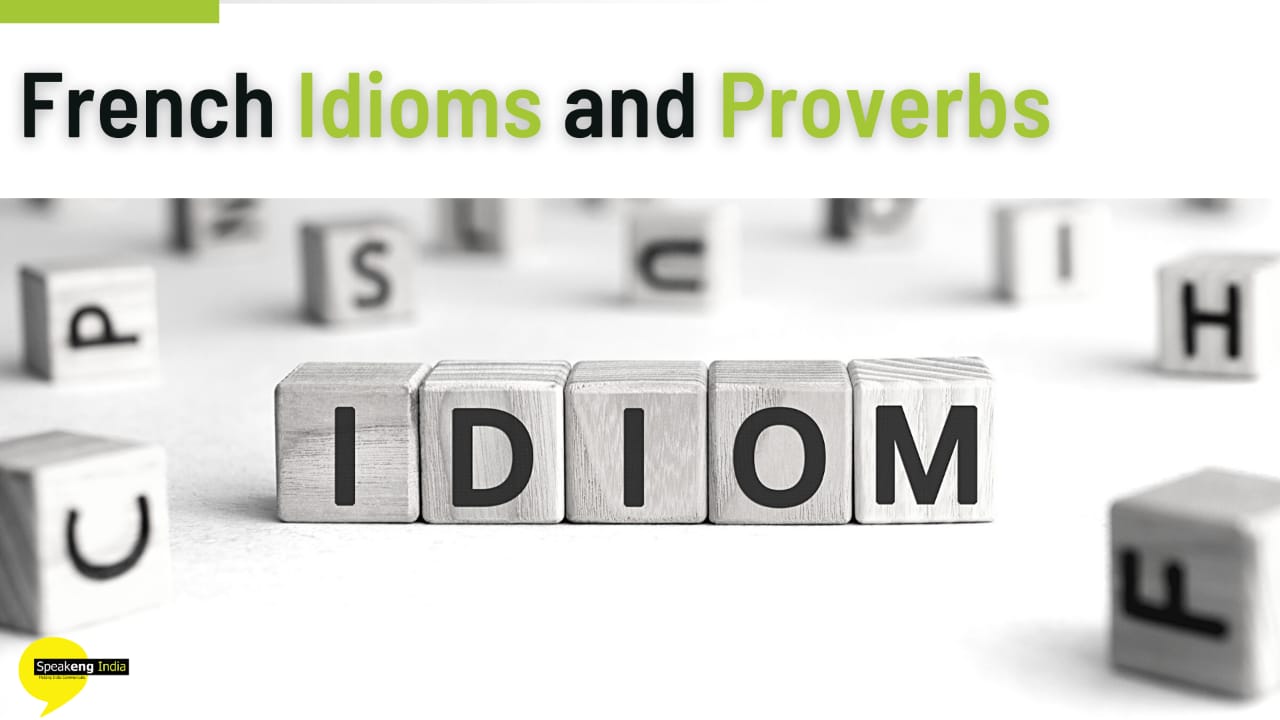Done with learning the basics of French, grammar, and vocab? How about raising our game to the next level? Let us learn some French idioms and Proverbs.
You might ask, “But why are you coaxing us into these difficult idioms and Proverbs? We just finished learning the basics and that’s all that is required! “
Well! Think about your mother tongue. How does it look if we remove the everyday idioms and proverbs from it? Isn’t it comparable to food without salt? Yes, it is so formal and bland!
Idioms and Proverbs are a set of words that have some specific meaning. They are more figurative in nature and their meaning cannot be deduced literally. They are undoubtedly, the essence of a language and may rightly be termed as the soul of the language. You might have learned the grammar, vocab, and accent of French, yet, to connect with a native speaker you should have a few idioms and proverbs up your sleeve. It is then, that you will feel more connected to the language, its land, and its speakers.
Let’s have a look at some of the most commonly used French idioms and Proverbs.
- Boirecomme un trou
Boirecomme un trou literally means to drink like a hole.Usually used for a person who drinks too much and never stops.
2. Mettre son grain de sel
Mettre son grain de sel in the literal sense means to put in one’s grain of salt. It’s almost the equivalent of an English proverb: to give one’s two cents or to give unsolicited advice.
3. C’estdommage
C’estdommage literally translates to ‘that’s a shame” or ‘that’s too bad’.
4. Je dis ça, je dis rien
Je dis ça, je dis rien literally means “I say that, I say nothing.” It’s just like in English we say, “just saying”. Usually used when you want to put across a point and at the same time soften your stand a bit.
5. Çamarche!
Çamarche! Translates to its English counterpart as “That works” and it is used completely like its usage in English. As in the agreement to something, like giving an affirmative nod to something.
6. La moutarde me/lui monte au nez
La moutarde me/lui monte au nez means ‘the mustard is getting to my nose’. Now you might think that this will result in a sneeze. But here it means that ‘I’m getting angry’ or as in English, ‘it is getting on my nerves’.
7. Coûter les yeux de la tête
Coûter les yeux de la tête translates to ‘something that costs the eyes in your head’. This, in simple terms, means something that is exorbitantly priced. Its English equivalent being ‘to cost an arm and a leg’.
8. Revenons à nos moutons
Revenons à nos moutons translates to ‘Let’s get back to our sheep’. This means, ‘Let’s get back to what we were talking or doing’.
9. Mieuxvautprévenir que guérir
Mieuxvautprévenir que guérir is equivalent to the English proverb ‘Prevention is better than cure’.
10. Qui sème le vent, récolte la tempête
Qui sème le vent, récolte la tempête in literal sense means ‘He who sows the wind, shall reap the tempest’ Heard about a similar English proverb? As you sow so shall you reap.
Hope it was a fun journey glancing at those Idioms and Proverbs from French. Inculcate them in your language and see how you feel all the more connected to this beautiful language. Speakeng India is the best Foreign Language Institute if you are looking at learning French from the comfort of your home. Speakeng India offers the best French classes in Bangalore.
Author
Vaishali Pandey




